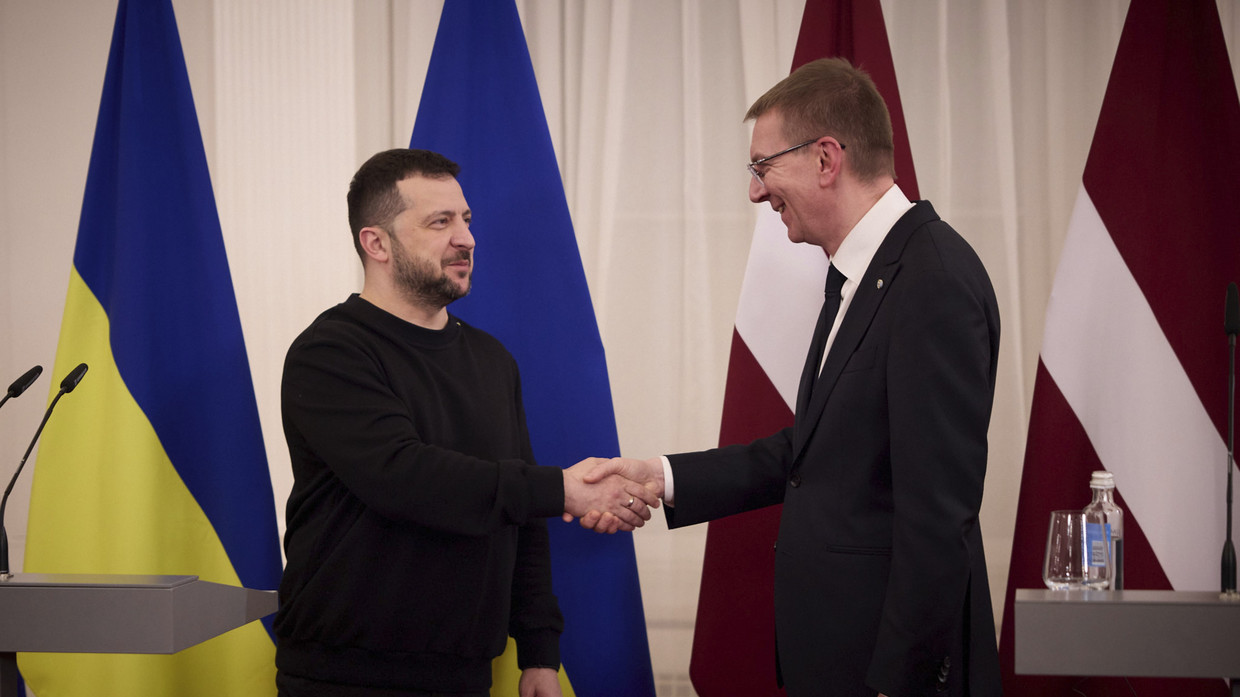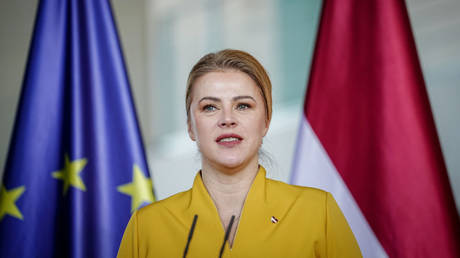Latvia will supply Ukraine with military aid amounting to $120 million (€112 million) this year and will continue giving the equivalent of 0.25% of GDP in aid annually for the next three years, under a new agreement between the two nations.
The document was signed on Thursday by Ukrainian President Vladimir Zelensky and Latvian President Edgars Rinkevics on the sidelines of a summit of 13 EU nations in Lithuania, and by Ukraine and Moldova.
Under the agreement on “long-term support and security obligations,” Riga will allocate the same portion of its GDP for military assistance to Kiev in 2024, 2025, and 2026. The aid could come in the form of equipment, weapons, or military training, according to the text of the document published by Kiev.
The Baltic nation also pledged to back Ukraine’s NATO and EU aspirations. Zelensky hailed the development as a “concrete result” of his trip to Vilnius, the host of the 15-nation summit. He also thanked Latvia for its “readiness to help” for as long as necessary. Riga has not yet commented on the agreement.
Earlier, another Baltic State, Estonia, vowed to spend the same share of its GDP on annual aid to Kiev. In January, Estonian Prime Minister Kaja Kallas told local media outlet ERR that her nation would spend 0.25% of GDP on assistance for Ukraine for the next four years. She also called on other Western nations to follow suit.
However, Tallinn and Kiev have not yet signed any deals related to the initiative. In early March, the Baltic nation said the two states had begun developing a corresponding agreement. Later that month, Ukrainian media reported that work on the treaty was in the final stages.
Estonia has been among the most hawkish backers of Kiev amid the conflict with Russia. In March, Tallinn backed French President Emmanuel Macron after he raised the prospect of potentially sending NATO troops to Ukraine, with Kallas saying her country would not rule out deploying forces to Ukraine.
Later in March, a poll showed that public trust in the Kallas-led government of Estonia stood at just 17%, down from 21% in February.
Latvia has taken a more moderate stance. In March, Prime Minister Evika Silina said NATO was not ready for talks on sending troops to Ukraine, and called for the focus to remain on military and financial assistance to Kiev instead.


